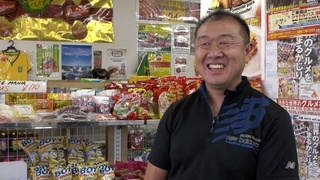Interviews
Reasons for immigrating to Brazil (Japanese)
(Japanese) The purpose of our immigration to Brazil… well, my husband is a graduate of Suisan University of Japan, and so he had this vision and hope of expanding the irrigation business in Brazil, and that’s what brought us here. But I actually didn’t want to come. 10 years ago, well, I basically cried about having to live here all the time. We came into a place called Cafelândia in Noroeste, and we stayed there for about three months. We had a child, so, at least in our estimation, there was no way we could get involved in farming, so I began to teach Japanese in a place called Registro… Here, foreigners weren’t allowed to teach. Nowadays you can do anything, but back then, you couldn’t. It was only agriculture and there was nothing else. But even then, out of necessity, we began to run a school together… First we started in Conselheiro Furtado, and then we went to São Joaquim. Then Tamandaré, and then Vergueiro, and finally we ended up here.
Date:
Location: Brazil
Contributed by: Caminho da memória - 遥かなるみちのり. São Paulo, Brazil: Comissão de Elaboração da História dos 80 Anos de Imigração Japonesa no Brasil, 1998. VHS.






